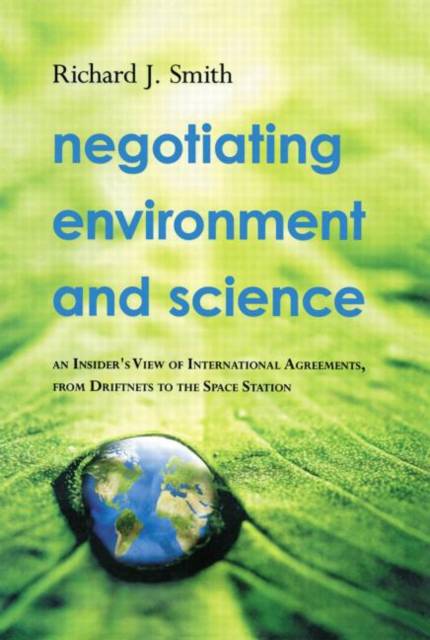
- Retrait gratuit dans votre magasin Club
- 7.000.000 titres dans notre catalogue
- Payer en toute sécurité
- Toujours un magasin près de chez vous
- Retrait gratuit dans votre magasin Club
- 7.000.000 titres dans notre catalogue
- Payer en toute sécurité
- Toujours un magasin près de chez vous
Negotiating Environment and Science
An Insider's View of International Agreements, from Driftnets to the Space Station
Richard J Smith
Livre broché | Anglais
33,95 €
+ 67 points
Format
Description
In this thought-provoking new book, career U.S. State Department negotiator Richard J. Smith offers readers unprecedented access to the details about some of the most complex and politically charged international agreements of the late and immediate post Cold War era. During his nine years as Principal Deputy Assistant Secretary in the Bureau of Oceans and International Environmental and Scientific Affairs, Smith led U.S. negotiations on many significant international agreements. In Negotiating Environment and Science, Smith presents first-hand, in-depth accounts of eight of the most high-profile negotiations in which he was directly involved. The negotiations Smith covers are wide-ranging and include the London agreement to amend the Montreal Protocol on Substances that Deplete the Ozone Layer, the international space station agreement, the U.S.-Soviet (eventually, U.S.-Russian) agreement on scientific cooperation, the U.S.-Canada acid rain agreement, the negotiations in Sofia, Bulgaria that established a first link between human rights and the environment, and a contentious confrontation with Japan over driftnet fishing. Smith chronicles the development of these negotiations, the challenges that emerged (as much within the U.S. delegations as with the foreign partners), and the strategies that led to substantive treaties. Smith infuses his narrative with unique historical insight as well as astute observations that can guide U.S. strategies toward productive international agreements in the future. His book also highlights the shift in diplomatic focus over the past 25 years from arms control and other security-related agreements to international and trans-boundary agreements that address global environmental threats and promote cooperative approaches in science and technology. Written for an audience with a general interest in environmental issues as well as international relations, Negotiating Environment and Science will also be an important resource for historians, political scientists, and students in international law and diplomacy.
Spécifications
Parties prenantes
- Auteur(s) :
- Editeur:
Contenu
- Nombre de pages :
- 192
- Langue:
- Anglais
Caractéristiques
- EAN:
- 9780415505482
- Date de parution :
- 02-03-12
- Format:
- Livre broché
- Format numérique:
- Trade paperback (VS)
- Dimensions :
- 140 mm x 216 mm
- Poids :
- 231 g







